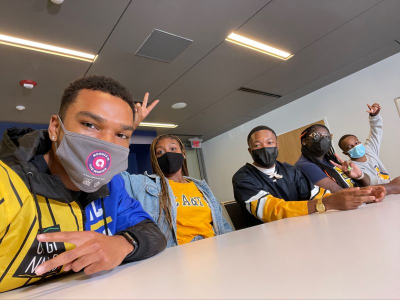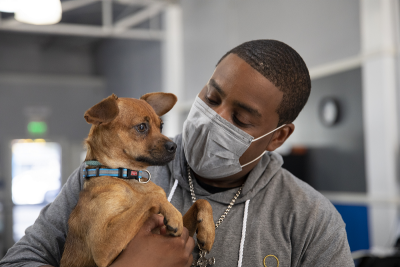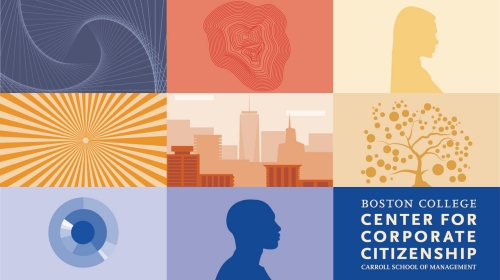WEBINAR: This research unpacks 2024 data on the roles, responsibilities, development, and compensation of people working in your field. The findings provide insight into how professionals at all levels assess the skills they need to be effective, and what they perceive as the greatest challenges they must overcome.
Diversity, equity, and inclusion as smart business strategy

Rather than relegate diversity, equity, and inclusion (DEI) to a separate department with little integration with other operations, companies are incorporating DEI throughout all functions to maximize results.
With the escalating demonstrations for racial justice over the last decade, new and revitalized DEI programs and commitments at companies have surged. One estimate shows that over the past year, 70% of companies have rolled out new DEI commitments, 96% plan to expand their talent outreach strategies to build a more equitable workplace, and 40% have employee resource groups, which is a 9% increase from the previous year.
Business benefits of DEI
This increase in DEI focus should result in positive changes in societal and economic equity and business performance. Research further shows that companies in the top-quartile for gender diversity on executive teams were 21% more likely to outperform on profitability and 27% more likely to have superior value creation; and those in the top-quartile for ethnic and cultural diversity on executive teams were 33% more likely to have industry-leading profitability.
These top performers succeed because diverse and inclusive workforces often result in improved teamwork, innovation, and productivity. These benefits have the potential to grow when DEI initiatives and values are integrated throughout all aspects and functions of a company. Ally Financial and Banfield Pet Hospital present two examples of companies that have seen meaningful results from effective integration of DEI into all aspects of business, for both internal and external stakeholders.

Ally: A holistic approach to diversity, equity, and inclusion
Ally Financial knows that everyone is better off with an ally to help them on the road to financial security. That’s why the digital financial services company made diversity, equity, and inclusion (DEI) strategic priorities that shape the company’s culture, values, and direction. Ally’s strategic approach to corporate citizenship initiatives recognizes that for all communities to thrive, every member must have equitable opportunities to succeed.
“We understand the change we drive within our company makes an impact outside it, and we are committed to being part of the solution,” says Jeffrey J. Brown, chief executive officer of Ally.
In 2020, to help address the wealth gap and create opportunities in underrepresented communities, Ally built on its years of diversity initiatives to develop a Financial and Social Inclusion plan that promotes equity by concentrating on four key areas.
“By focusing on our four pillars—employees, customers, communities, and suppliers—we are committed to advancing economic mobility, addressing persistent inequities in Black and Brown communities and creating a more inclusive culture within our four walls at Ally,” Brown said.
Regarding employees, the company recognizes that it must reflect its communities to best serve its customers. Women and people of color currently hold 54% of Ally’s senior leadership positions. In 2020, 32% of women and people of color were promoted or moved to new roles that would help to advance their careers. And importantly, Ally’s retention rate for women or people of color in 2020 was 90%. Ally also raised its minimum wage to $20 an hour.
More than 40% of employees are members of one of Ally’s eight employee resource groups (ERGs), which provide professional development and create visibility among colleagues in order to serve populations more effectively. For example, the company worked with its Asian-Middle Eastern ERG to determine ways to best support Asian American employees experiencing heightened anxiety due to increased xenophobia during the pandemic.
In service of its customers, in summer 2021, Ally Bank eliminated overdraft fees on all accounts, significantly impacting customers living paycheck to paycheck. The overwhelming majority of all consumers nationwide who paid $12.4 billion in overdraft fees in 2020 were “financially vulnerable” and disproportionately Black and Latinx. Ally also took several swift actions to help consumer and dealer customers adversely impacted by COVID-19 with several industry-leading relief actions, such as providing up to 120-day deferrals on auto and house payments.
Within its communities, Ally continues to grow its commitment to opening pathways to economic mobility for underrepresented communities with programs such as Moguls in the Making, which helps students at historically Black colleges and universities develop business skills and earn scholarships. In the first three years of Moguls, which was developed with the Thurgood Marshall College Fund, Ally provided more than $415,000 in scholarships and hired 25 interns and nine full-time employees. Ally also supported the Atlanta expansion of the University Growth Fund, which provides college students with hands-on experience in venture capital, to ensure more Black and Brown students have access to training in a field with significant earning potential. It also funds scholarships for students of color pursuing careers in law, public policy, actuarial science, and other fields with little diversity.
Affordable housing is another Ally corporate citizenship priority. Through its Ally Charitable Foundation, the company teamed up with Habitat for Humanity of the Charlotte region and the City of Charlotte to launch the Habitat region’s largest housing development project to date: a 38-home development. The project will revitalize a historic Black neighborhood in West Charlotte and help address a critical shortage in affordable housing in the metro Charlotte area. Additionally, Ally has committed more than $1 billion a year in Community Reinvestment Act loans and investments that benefit low/moderate income communities.
From a supplier perspective, Ally understands that its communities must have equitable opportunities to business success and therefore launched its Ally Supplier Diversity Program in early 2020. To ensure that diverse suppliers understand the company and get to know its leadership, Ally hosts quarterly symposiums designed to speed relationship building and connect these mostly small businesses to opportunities within the company’s supply chain.
By successfully integrating DEI efforts throughout the company, Ally is better positioned to help external stakeholders in the community more effectively. The introduction of its Financial and Social Inclusion framework addresses systemic racism and helps move the needle toward equity within the company and its communities.

Banfield: A more inclusive world for pets, people, and communities
Banfield Pet Hospital is the largest general veterinary practice in the United States, with more than 3,600 veterinarians working at more than 1,000 hospitals across the country and Puerto Rico. This broad reach in a unique industry makes Banfield’s corporate social responsibility efforts—especially investments in equity, inclusion, and diversity—all the more influential.
Banfield discovered two startling and intersecting facts while researching the veterinary industry: First, by 2030, an estimated 75 million pets may not have access to adequate veterinary care due to a shortage of veterinary professionals. Also, according to the Bureau of Labor Statistics, 90% of current veterinary professionals identify as white. In combining these two insights, Banfield saw a unique opportunity to encourage the growth of the veterinary field while simultaneously working to diversify the industry.
“The veterinary profession is not only essential, but we are also in increasingly high demand,” says Melissa Marshall, vice president of people and organization. “Banfield is committed to partnering with the veterinary industry to ensure the talent pipeline grows and diversifies to meet the evolving needs of pets, people, and society.”
In 2020, Banfield announced a $1 million commitment to encourage equity, inclusion, and diversity (EI&D) within the veterinary field. This included the launch of the Banfield & Royal Canin Student Support Fund. This partnership provides $125,000 to alleviate the financial strain placed upon Tuskegee veterinary students. Further investing in the growth and development of veterinary professionals, the company also launched the Banfield Educational Pathways Program. This includes a partnership with education firm, InStride, which provides paraprofessionals Banfield-paid tuition to complete an online undergraduate degree in the field of science, technology, engineering, and math (STEM). To help address the market demand—particularly in rural communities—for skilled veterinary professionals, the practice partnered with Appalachian State University on the development of a new four-year, online veterinary technician degree program.
Additionally, Banfield is working to educate young people about the veterinary field to encourage interest in the profession. Through its Pet Academy program, Banfield enlisted its team of veterinarians and veterinary technicians to teach aspiring students about careers in the veterinary profession. Since its launch, the program is on track to reach 100,000 kids by the end of 2022. To broaden its reach, the program has since been made available virtually, and presentations are available in new languages, including Mandarin, Korean, and Farsi. This fall, Banfield announced a nearly $10 million commitment over the next year toward supporting STEM education and strengthening educational pathways for current and future veterinary professionals. This includes a new national partnership with Boys & Girls Clubs of America focused on encouraging high school students from underrepresented backgrounds to pursue careers in veterinary medicine. In addition, on October 27, 2021, Banfield opened applications for NextVet, a once-in-a-lifetime paid internship that will give deserving high school students across the country an immersive experience, providing insight into multiple aspects of being part of a veterinary hospital team and the industry.
Banfield is engaging its associates in this effort as well. The month of October was the company’s Mars Volunteer Program month, a time when associates unite across Banfield practices to make a difference in local communities. This year, Banfield encouraged its more than 19,000 associates to support educational pathways in their communities, including going to local schools, STEM supply drives, and more. In total, Banfield associates reached more than 15,000 young people.
Internally, Banfield has taken steps toward fostering a culture of inclusion, from adding gender-neutral restroom signage in the practice’s more than 200 standalone locations, to giving associates the option to add pronouns to name tags. The practice also has six Diversity Resource Groups (DRGs) to unite and support its more than 19,000 associates—with plans for further expansion—including: #BanfieldAPI (Asian and Pacific Islander); #BanfieldNextGen (transgenerational innovation); #POWERatBanfield (Black and African-American); #BanfieldPride (LGBTQ+); #UnidosenBanfield (Hispanic and Latinx); and #WomenofBanfield (empowering women). The company is also one of the co-founders of the Diversify Veterinary Medicine Coalition, which supports EI&D in the veterinary field by developing tools to embed a culture of inclusion, creating representation to build diverse talent pipelines, and reducing barriers to entry for Black, Indigenous, People of Color (BIPOC); all of which are similar to Banfield’s goals for its own company.
For Banfield, 2020 raised new opportunities to positively impact people, pets, and society. The company rose to the occasion with these new initiatives and more, aiming to foster an inclusive culture that celebrates diversity of thought and experiences. “Inclusion unlocks our differences so we can have belonging, and who you are at home is who you should be at work,” says Marshall. “At Banfield, we have the responsibility to truly listen at scale and be part of the conversation. Now is not about silence, it’s about change.”
Join us for the “Diversity, equity, and inclusion: Commitments and action” session at the 2022 International Corporate Citizenship Conference. There’s still time to register!
Related Content
Profile of the Professionals reports provide insight into how professionals at all levels assess the skills they need to be effective in their roles. This report focuses on the energy industry.
Profile of the Professionals reports provide insight into how professionals at all levels assess the skills they need to be effective in their roles. This report focuses on the insurance industry.
Profile of the Professionals reports provide insight into how professionals at all levels assess the skills they need to be effective in their roles. This report focuses on the health care industry.




